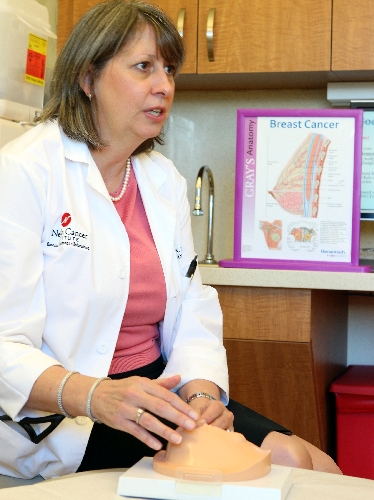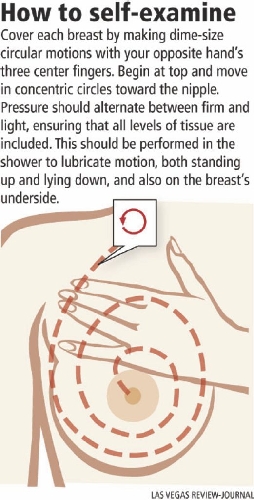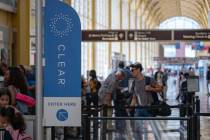BREAST CANCER: Self-exams, regular mammograms key to prevention
Ready for another bad list topped by Nevada? According to the latest figures from the Centers for Disease Control and Prevention, Nevada ties Mississippi for the state with the fewest females eligible for mammograms who actually get them (72 percent).
This falls somewhere between a shame and a crime, say some experts, because 12.7 percent of U.S. women will develop breast cancer during their lifetimes (according to the National Cancer Institute) and prognoses worsen as cancer grows.
"Early detection is your best defense," says Dr. Karen Fields, chief medical officer for the Nevada Cancer Institute. "Women with early stage (cancer) have a very, very high chance of being cured." (That chance is as high as 90 percent up through the second stage of the disease.)
Fields recommends that women start self-examining monthly sometime between ages 20 and 40.
"They have to get used to what's a normal feeling and what's an abnormal feeling," she says. "Anything that's new, they should go to their doctor and ask. A new breast mass needs to be evaluated."
Women who find a lump are cautioned not to panic.
"If you're younger, it's a higher chance that's it's going to be benign -- a cyst or something," Fields says, "because the incidence of breast cancer increases as you age.
"But I would never want to give the impression that if a woman who is 25 finds a lump, she should think it's benign and move on because I had a patient with breast cancer at 19."
If no mass is detected, Fields says, the first breast X-ray, or mammogram, should be administered between ages 35 and 40 (25 if breast cancer runs in the immediate family). Fields recommends them yearly starting at age 40.
A controversy erupted last year after an international medical association called the Cochrane Collaboration questioned the efficacy of regular mammograms. Although its studies confirmed that they reduce breast cancer mortality rates by 15 percent, they also found that mammograms increase overdiagnosis and overtreatment by 30 percent. In other words, they put healthy women through unnecessary surgery, radiation exposure and psychological trauma.
However, as noted by breast cancer specialist Dr. Heather Allen of Comprehensive Cancer Centers of Nevada, the rare breast cancers that are found in young women tend to be more aggressive.
"And if mammograms can help us pick cancers up early -- especially if some of those may be aggressive cancers -- it certainly is worth it," Allen says.
According to Fields, "an explosion of new drugs and therapies" has increased breast cancer survival rates, allowing even women with the incurable fourth stage to live beyond five years.
"It's become a very treatable disease," Fields says. "There are a lot of reasons women don't screen themselves properly. And I don't want one of them to be because they're afraid."
Contact reporter Corey Levitan at clevitan@review journal.com or 702-383-0456.
More Breast Cancer Awareness
Breast Cancer Awareness





























